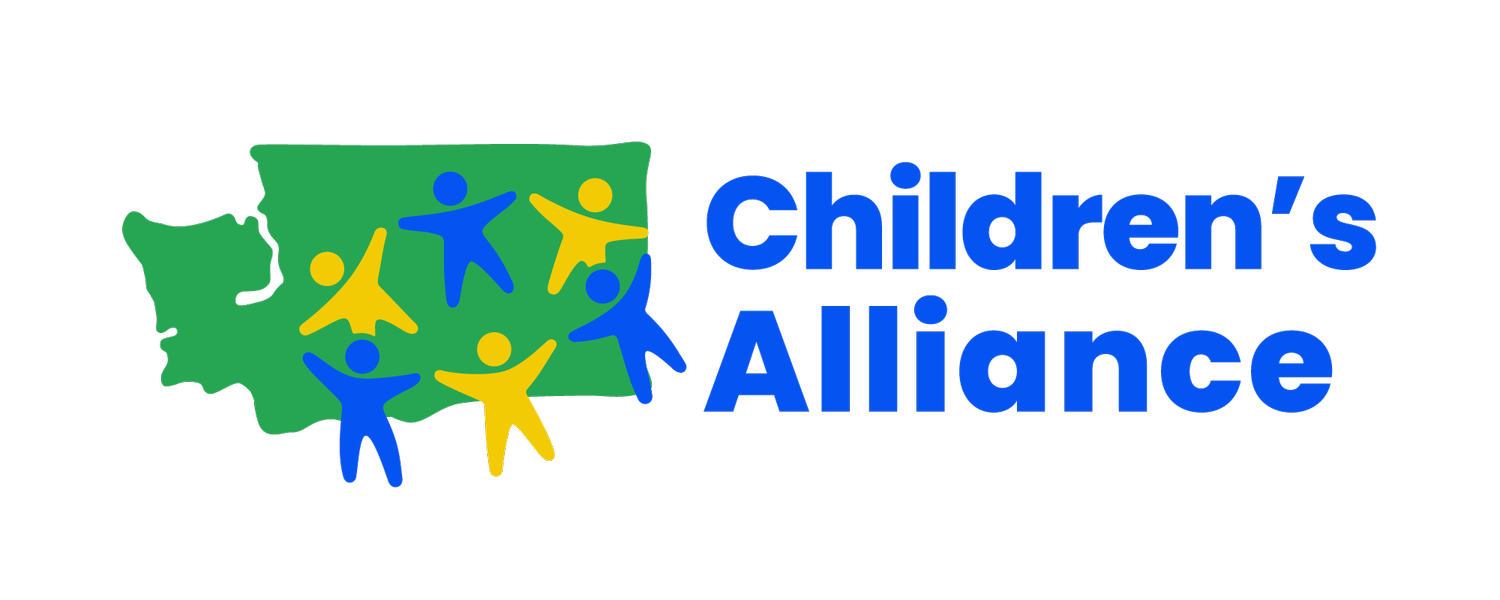BLOG
KIDS’ HEALTH COVERAGE AT RISK WHEN PUBLIC HEALTH EMERGENCY ENDS
When the public health emergency ends, families using Medicaid will have to prove their eligibility, and thousands of people in Washington, including children on Apple Health for Kids, could lose coverage if they are no longer eligible - or face administrative barriers during the process.
GOVERNOR’S PROPOSED BUDGET INVESTS IN KIDS AND FAMILIES
Governor Inslee's proposed 2023-25 budget was released on December 14 and it contained a robust set of proposals to support Washington’s children and families.
SUPPORT HEALTH EQUITY FOR KIDS AND FAMILIES THIS LEGISLATIVE SESSION
There is no better time to get involved in the legislative process and push our lawmakers to prioritize the health of Washington’s children.
EXPAND ACCESS TO QUALITY EARLY LEARNING FOR ALL FAMILIES
We have an opportunity this 2023 legislative session to ensure all families have access to high quality early learning programs.
2023 LEGISLATIVE AGENDA
Here in Washington, the COVID-19 pandemic exacerbated longstanding inequities faced by kids and families in communities of color. Access to health care, high-quality early experiences for children ages birth to 5, and progressive revenue are promising strategies to ensure that every child has an abundance of what they need to grow up into the people they dream of becoming.
PROGRESS REPORT 2021 - 2022: A YEAR IN REVIEW
Our 2021-2022 Progress Report features a review of the 2022 legislative session and insights from our leadership about what lies ahead for Children’s Alliance in 2023.
MAKING SURE “EVERY SINGLE FAMILY, EVERY SINGLE CHILD” HAS A STRONG PATH FORWARD
“We can really change the course of history in Washington state.” These powerful words from Representative Noel Frame epitomize the message we heard at Path Forward 2022.
WE ASKED ABOUT THE ISSUES THAT MATTER TO YOU. HERE’S WHAT WE HEARD
As we prepare for the 2023 legislative session, Children’s Alliance is strengthening our capacity to deliver relevant and up-to-date information on the most important issues facing children and families in our state.
CHAMPIONS FOR CHILDREN 2022
Champions for Children are state lawmakers recognized by Children’s Alliance for their work to further our annual legislative agenda. Each of the following legislators provided significant leadership during the 2022 legislative session in advancing state policies or investments to improve the well-being of children in Washington.
THE 2022 LEGISLATIVE SESSION: KIDS AND HEALTH CARE
What were the major achievements in health care? Policy-wise, the legislature established birth doulas as a new licensed health profession in Washington state, helping grant Medicaid reimbursement for delivery of babies with the assistance of doulas and addressing racial and income inequality for birthing persons.
THE 2022 LEGISLATIVE SESSION: EARLY LEARNING
What were the major achievements in early learning?This year, our state legislature championed children and families by passing and funding Senate Bill 5793: this is a big win to address the equity gap in who has a voice at the table and who gets to help shape policies and programs that help Washington families thrive.
EXCITING PROGRESS, AND SOME DISAPPOINTMENT, IN 2022 SESSION
Despite its short length, this legislative session bore significant victories for kids and families. And for the second year in a row, advocates from across the state were able to make their voices heard in Olympia by signing in to support or oppose bills and give testimony remotely. We hope to see the legislature continue this increased accessibility in the years to come, so that even more Washingtonians can participate in the process.
COURT PUTS PROFITS OF WASHINGTON’S WEALTHIEST OVER KIDS AND FAMILIES
Yesterday’s news that the Douglas County Superior Court struck down the capital gains tax is a setback for all who've worked tirelessly to fix our upside-down tax code and secure much-needed funding for early learning.
STATE BUDGETS SHOW CONTINUED PROGRESS FOR WASHINGTON KIDS
The House and Senate released their budgets earlier this week. Overall, we were pleased to see many of our priorities reflected in both budgets, which will result in positive impacts for our state’s children and families.
2022 MID-SESSION UPDATE
The 2022 legislative session is progressing fast, we’re already past the halfway point! Here’s an update on some of our top priority bills.
EARLY LEARNING ACTION ALLIANCE 2022 LEGISLATIVE AGENDA
As we continue through the pandemic, we must address the early learning workforce crisis which impacts child wellbeing and the ability for workers across all industries to continue working.
2022 LEGISLATIVE AGENDA
We believe in the potential of every child. But all too often, poverty, racism and the pandemic are putting opportunity out of reach.
Our legislative agenda seeks to protect kids, remove barriers and create pathways to success—so that Washington’s children and families stay strong, no matter what challenges we face.
EARLY LEARNING ACTION ALLIANCE CRAYON AWARDS 2021
This year, the Early Learning Action Alliance recognized 21 lawmakers with Crayon Awards for outstanding leadership in early learning. Their commitment to advancing policies and funding early learning over the last year has been crucial for Washington’s children and families.
POLICY CHOICES CAN BUILD A STRONG FOUNDATION FOR THE LIFELONG HEALTH OF KIDS
New KIDS COUNT brief highlights benefits of social and economic programs on children’s health beyond the pandemic.
HISTORIC INVESTMENTS IN EARLY LEARNING START SOON. HERE ARE THREE THINGS TO KNOW:
This July 1, kids and families across the state should begin to feel the effects of the Fair Start for Kids Act—the historic investment in early learning that state lawmakers passed during the 2021 legislative session.




















